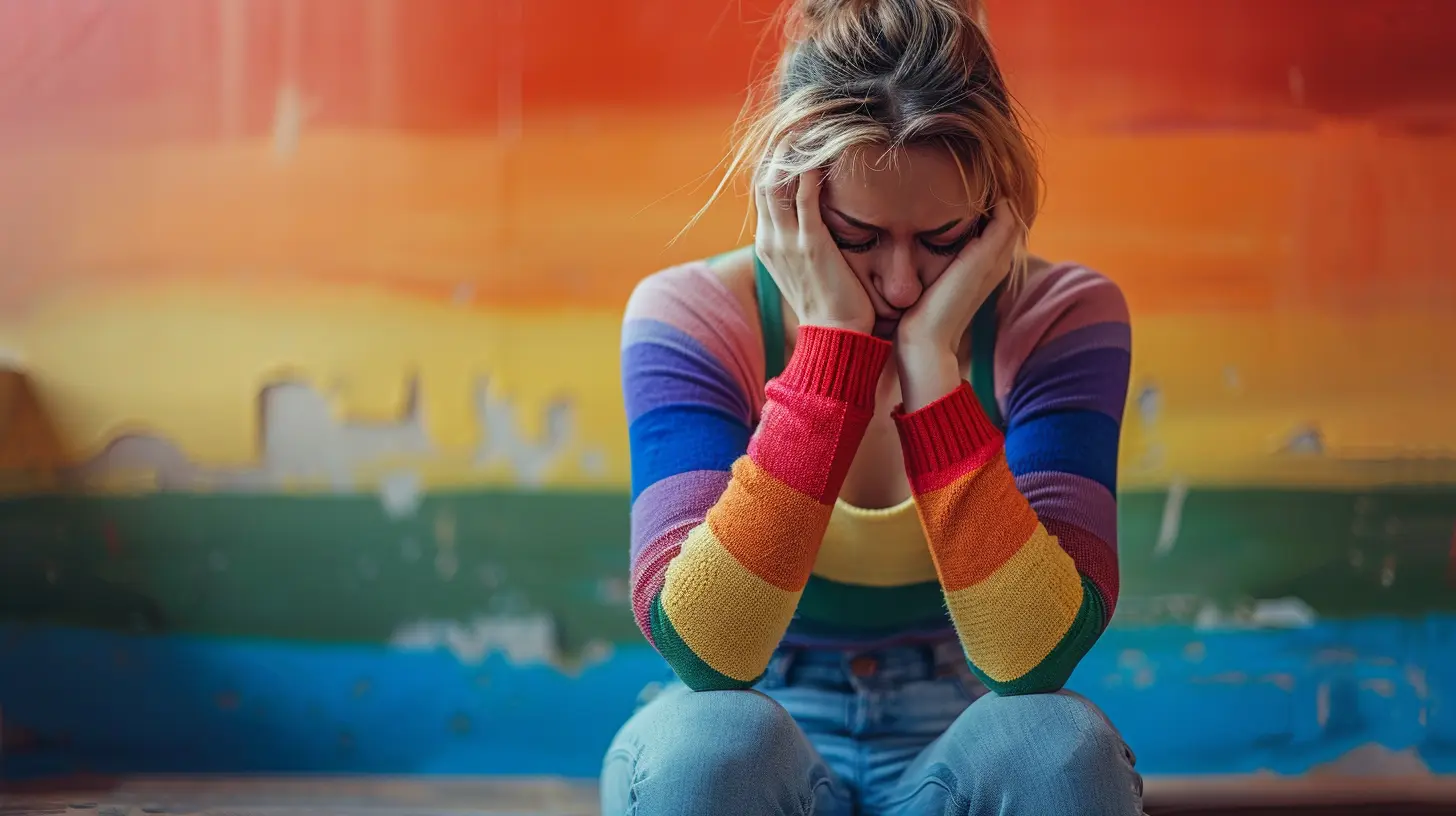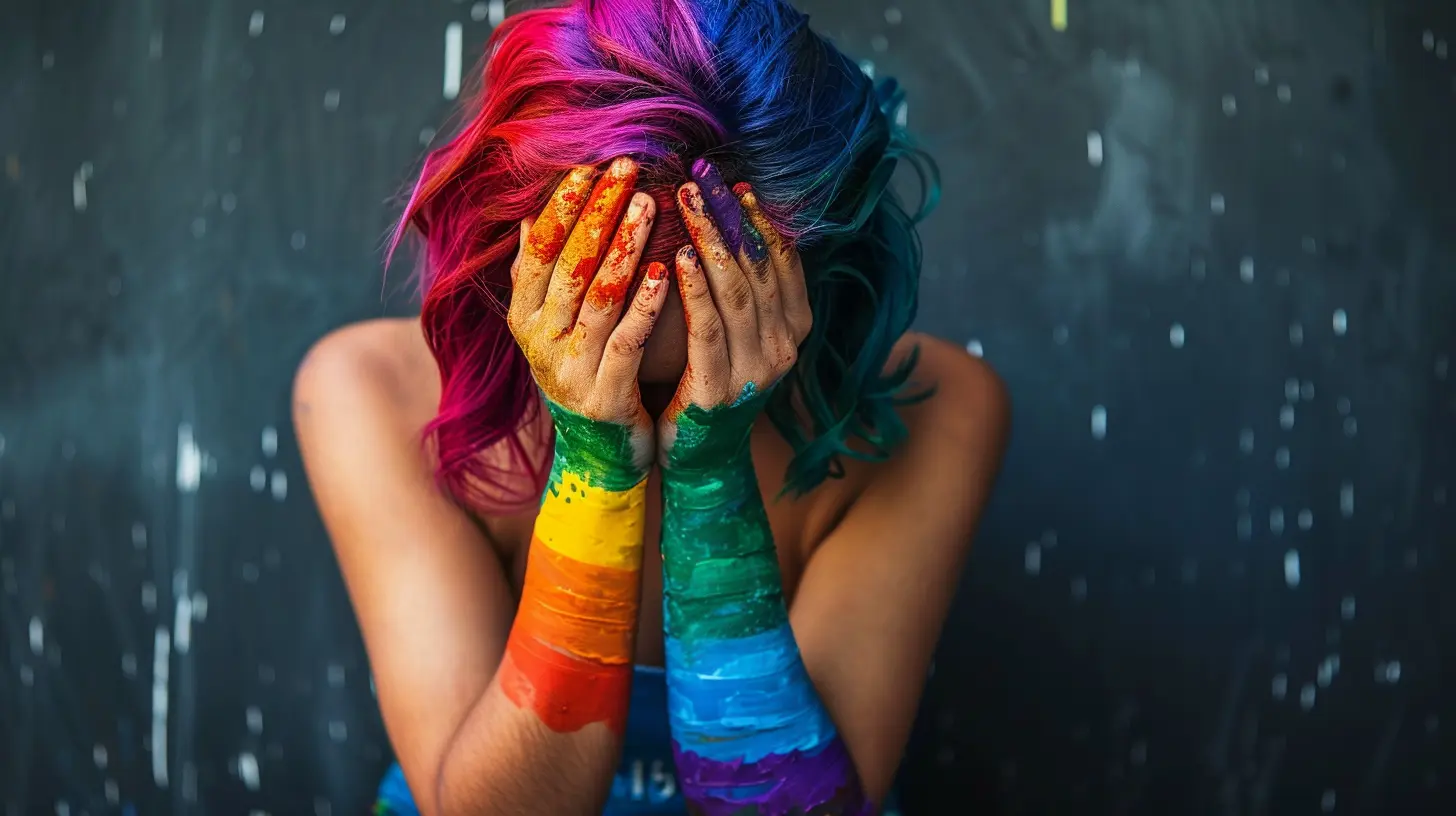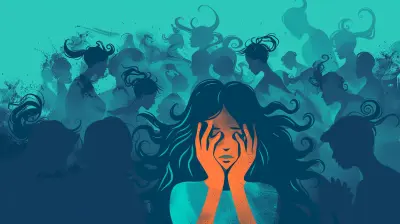Mental Health in the LGBTQ+ Community: Unique Challenges
22 May 2025
Mental health is something we all deal with, but for the LGBTQ+ community, the journey can come with some extra twists and turns. Think of it like hiking a mountain—everyone faces challenges, but some trails have steeper climbs and rockier paths.
If you or someone you love is part of the LGBTQ+ community, you probably already know that mental health struggles can be more common. But why is that? And more importantly, what can be done about it? Let’s dive into the unique challenges LGBTQ+ individuals face when it comes to mental health and how they can navigate this often-complicated landscape.

Why Mental Health Matters in the LGBTQ+ Community
Mental health isn’t just about feeling happy all the time—it’s about emotional well-being, coping with stress, and feeling supported. Unfortunately, LGBTQ+ individuals are at a higher risk for mental health conditions like depression, anxiety, and suicidal thoughts.According to various studies, LGBTQ+ people experience mental health struggles at higher rates than their heterosexual and cisgender peers. This isn’t because of their identity itself but rather the additional challenges they face in society.
But challenges don’t mean defeat. Understanding these obstacles is the first step toward overcoming them.

The Unique Challenges LGBTQ+ People Face
1. Discrimination and Stigma: The Silent Battles
One of the biggest reasons LGBTQ+ people struggle with mental health is discrimination. Even though society has come a long way, bias still exists in many forms—whether it’s in the workplace, at school, or even within families.Imagine constantly feeling like you have to prove yourself or defend your identity. That kind of stress isn’t just frustrating—it’s exhausting. The fear of judgment can lead to isolation, self-doubt, and even self-hatred.
2. Rejection from Family and Society
For many LGBTQ+ individuals, coming out is both freeing and terrifying. Ideally, everyone would be embraced by their loved ones, but that’s not always the case.Some face rejection from their families, which can lead to homelessness, financial instability, and emotional distress. Society, too, can create barriers, making them feel like they don’t belong. And let’s be honest—feeling like an outsider can be downright painful.
3. Higher Risk of Depression and Anxiety
When you’re constantly battling discrimination, rejection, and stigma, it’s no surprise that mental health takes a hit. Studies show that LGBTQ+ individuals are more likely to experience depression and anxiety compared to their heterosexual counterparts.Imagine carrying a heavy backpack filled with rocks—each rock representing a different stressor like discrimination, bullying, or family rejection. It’s no wonder that emotional exhaustion becomes a real issue.
4. Bullying and Harassment
School, college, the workplace—bullying can happen anywhere. LGBTQ+ youth, in particular, face significantly higher rates of bullying, both online and in person.Bullying doesn’t just hurt in the moment; it leaves lasting scars. It can lead to lower self-esteem, difficulty trusting others, and even post-traumatic stress disorder (PTSD).
5. Barriers to Healthcare
You’d think getting mental health support would be simple, but for LGBTQ+ individuals, there are often extra hurdles. Finding a supportive therapist who understands LGBTQ+ issues can be tough. Some even face outright discrimination in healthcare settings.For transgender individuals, the struggle is even greater. Many healthcare providers lack education on transgender health, which leads to inadequate care—or worse, complete dismissal of their health concerns.
6. Substance Abuse and Coping Mechanisms
When life throws emotional punches, people look for ways to cope. Unfortunately, substance abuse is a common struggle among LGBTQ+ individuals trying to deal with stress, trauma, or rejection.While substances may provide temporary relief, they often lead to a bigger spiral of mental health challenges. The key is finding healthier ways to manage stress, like therapy, support groups, or creative outlets.

How to Support LGBTQ+ Mental Health
Now that we’ve covered the challenges, let’s talk solutions. Because while the road might be tough, it’s not impossible to navigate.1. Finding a Support System
No one should have to face mental health struggles alone. Having understanding friends, family, or a support group can make a world of difference. If immediate family isn’t supportive, chosen family (friends who become like family) can be just as important.2. Accessing LGBTQ+-Friendly Therapy
Therapy is one of the best tools for managing mental health, but it’s important to find an LGBTQ+-friendly therapist who understands the unique struggles of the community. Online directories like Psychology Today, LGBTQ+ centers, and telehealth platforms can help find the right professional.3. Practicing Self-Care and Stress Management
Self-care isn’t just bubble baths and Netflix binges (though those can be great, too). It’s about taking care of your mind and body, whether through exercise, meditation, journaling, or spending time with loved ones.Even small steps—like getting enough sleep and eating nutritious food—can have a big impact on mental well-being.
4. Advocating for LGBTQ+ Rights and Representation
A more accepting society leads to better mental health outcomes. Supporting policies and organizations that fight for LGBTQ+ rights helps create a world where everyone feels safe and valued.Representation in media also matters. Seeing positive, authentic LGBTQ+ characters in movies, books, and TV shows can help individuals feel seen and accepted.
5. Helplines and Resources
Sometimes, immediate help is needed. Fortunately, there are many helplines specifically for LGBTQ+ individuals:📞 Trevor Project (1-866-488-7386) – A crisis intervention and suicide prevention service for LGBTQ+ youth.
📞 Trans Lifeline (1-877-565-8860) – A hotline staffed by trans people, for trans people.
📞 National Suicide Prevention Lifeline (988) – Available for anyone in crisis.
Reaching out for help is a sign of strength, not weakness. Everyone deserves support.

A Brighter Future for LGBTQ+ Mental Health
While the challenges are real, so is the resilience of the LGBTQ+ community. By continuing to break down barriers, advocating for change, and supporting one another, a future where mental health struggles are met with compassion and care is possible.If you or someone you know is struggling, remember: you are not alone. The road may be tough, but with the right support, brighter days are ahead.
all images in this post were generated using AI tools
Category:
Mental IllnessAuthor:

Gloria McVicar
Discussion
rate this article
3 comments
Maddox Martin
This article sheds light on the unique mental health challenges faced by the LGBTQ+ community. It’s crucial to recognize how societal stigma, discrimination, and identity struggles impact mental well-being. By fostering understanding and support, we can create a more inclusive environment that promotes mental health for all. Great insights!
June 6, 2025 at 3:03 AM

Gloria McVicar
Thank you for your thoughtful comment! I'm glad the article resonated with you and highlighted the importance of support and inclusion for LGBTQ+ mental health.
Ursula McKeever
This article shines a vital light on the unique challenges faced by the LGBTQ+ community regarding mental health. It's crucial to acknowledge these struggles and foster understanding and support. Thank you for addressing this important topic with compassion and insight!
May 24, 2025 at 4:12 PM

Gloria McVicar
Thank you for your thoughtful comment! I'm glad you found the article impactful in highlighting these important challenges.
Kendall McDowell
This article sheds light on the distinct mental health challenges faced by the LGBTQ+ community, highlighting the importance of tailored support and inclusive resources to foster resilience and well-being.
May 22, 2025 at 2:49 PM

Gloria McVicar
Thank you for your insightful comment! I'm glad you found the article valuable in addressing the unique mental health challenges within the LGBTQ+ community and the need for tailored support.



